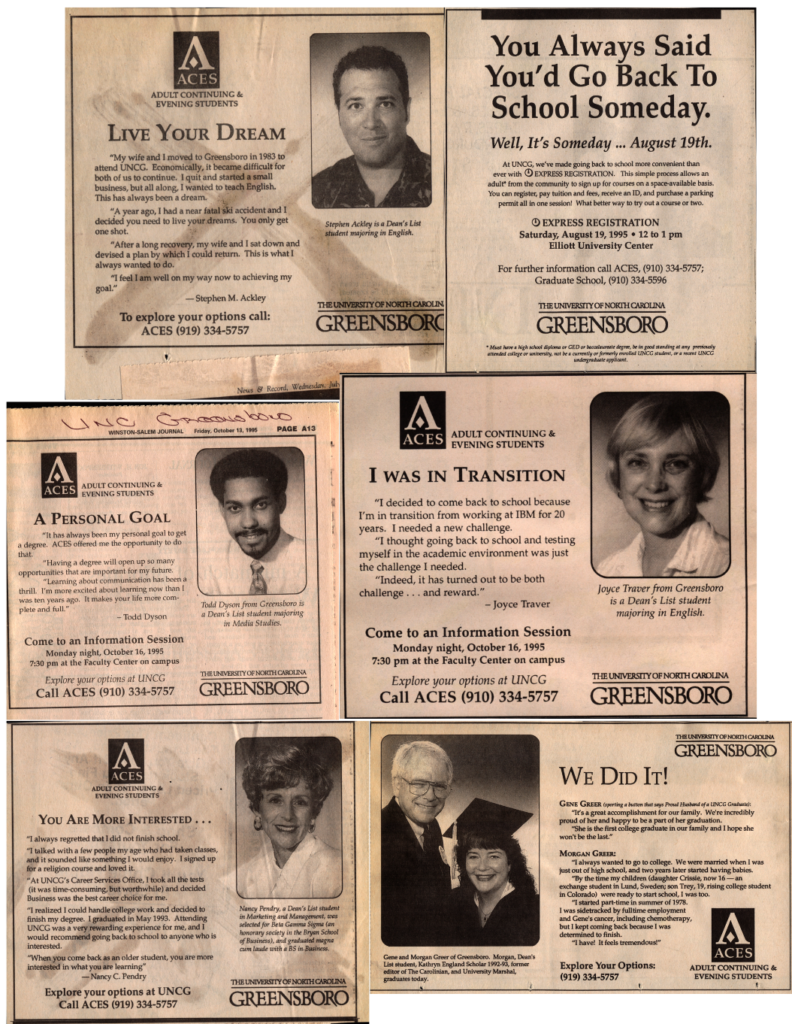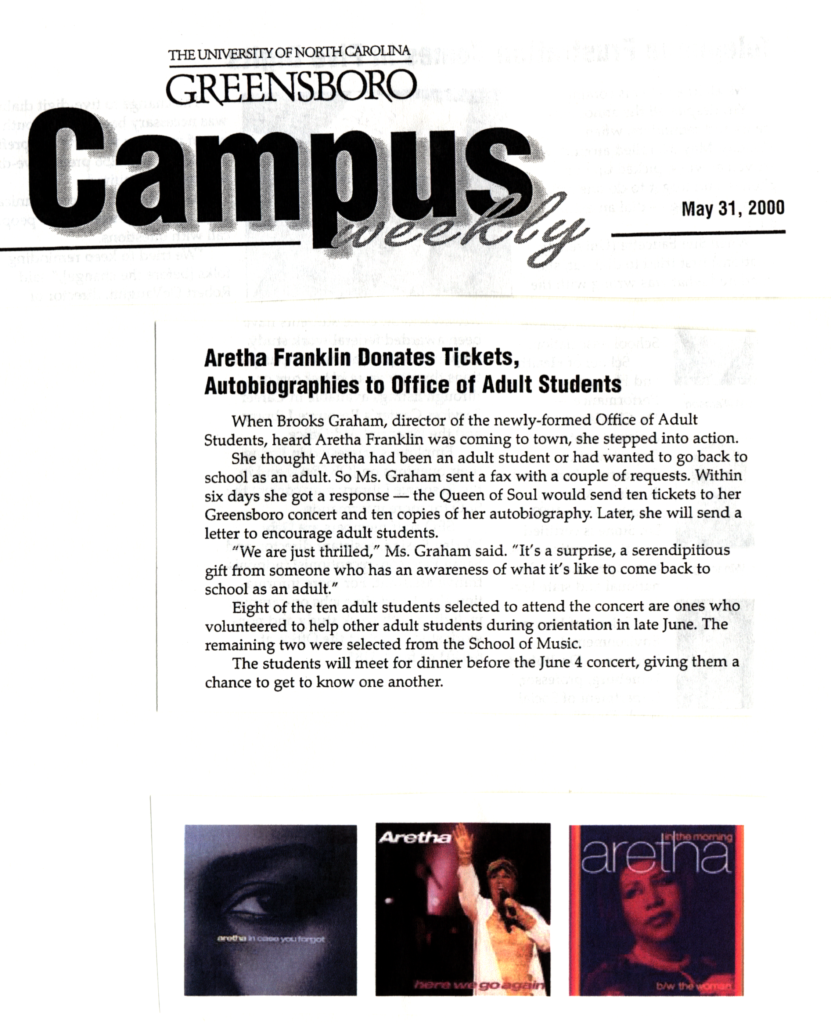Written by: Cecil Barlow
Adult student services have existed in many different forms at UNCG. At the school’s inception in 1892, there were no such delineated services—adult education was left generally unconsidered in the United States until the passage of the G.I. bill in 1944. This bill provided subsistence and tuition payment for veterans wishing to continue their education. In response to the bill, by 1947, nearly half of all attending college students were adult student veterans. This included over 332,000 woman veterans who were also eligible for benefits under the GI Bill.
At UNCG, the first instance of a center specifically designated for adult students was the “Center for Continuing Education for Women” established in 1968. This program was a “pilot program” designed to study UNCG’s interactions with adult students and sought to discover what specific barriers and challenges were faced by adult women students at the college. At the center, adult students were able to seek help and advice specifically tailored to their needs.
This program and its results were the impetus for the Office for Adult Students’ creation in 1972. The Office for Adult Students (sometimes referred to as OAS) managed the needs and affairs of adult students at UNCG as an independent unit on campus. The office merged with the Office of Admissions in 1980 and took on the responsibility of managing and assisting adult student enrollment and needs.
In 1973, a special project was launched by the Office of Admissions to find and assist adults with unique educational backgrounds. The experimental program focused on identifying specific support services that the university could provide for adult students. The project eventually resulted in the establishment of the Adult Continuing Education Services (ACES) in 1992. There was a large influx of adult students interested in continuing education in the early 1990s, and UNCG was now fully invested in embracing that population. Many advertisements for the educational services division appealed to the convenient location of UNCG, the affordability of classes, evening classes, and student aid provided by ACES. Many advertisements also were motivational for adults, citing personal success stories from fellow adults who had returned to school.


The inception of ACES in 1992 marked a change in attitude towards adult students at UNCG. Prior to its inception, there were many procedural boundaries for adult students, such as issues involving prior credits, and the requirement for an interview. ACES addressed these issues by creating a direct path for all adults who were reenrolling or enrolling for the first time, providing more orientation, and sending more frequent newsletters with information. ACES also aimed to provide adult students with more confidence, not only in their education but themselves. One notable event by ACES was providing for select adult students to meet with Aretha Franklin during one of her shows at the Greensboro coliseum in 2000. Franklin herself returned to college as an adult, making the collaboration fitting for the occasion.

Presently at UNCG, services for adult students are dispersed amongst various offices concerning enrollment and student success. This is due to changing challenges and opportunities in education for all students such as remote online learning and a shifting job market. In addition, adult students are often drawn toward the services and structures provided by community colleges which can better suit the educational needs of the independent adult rather than four-year institutions.